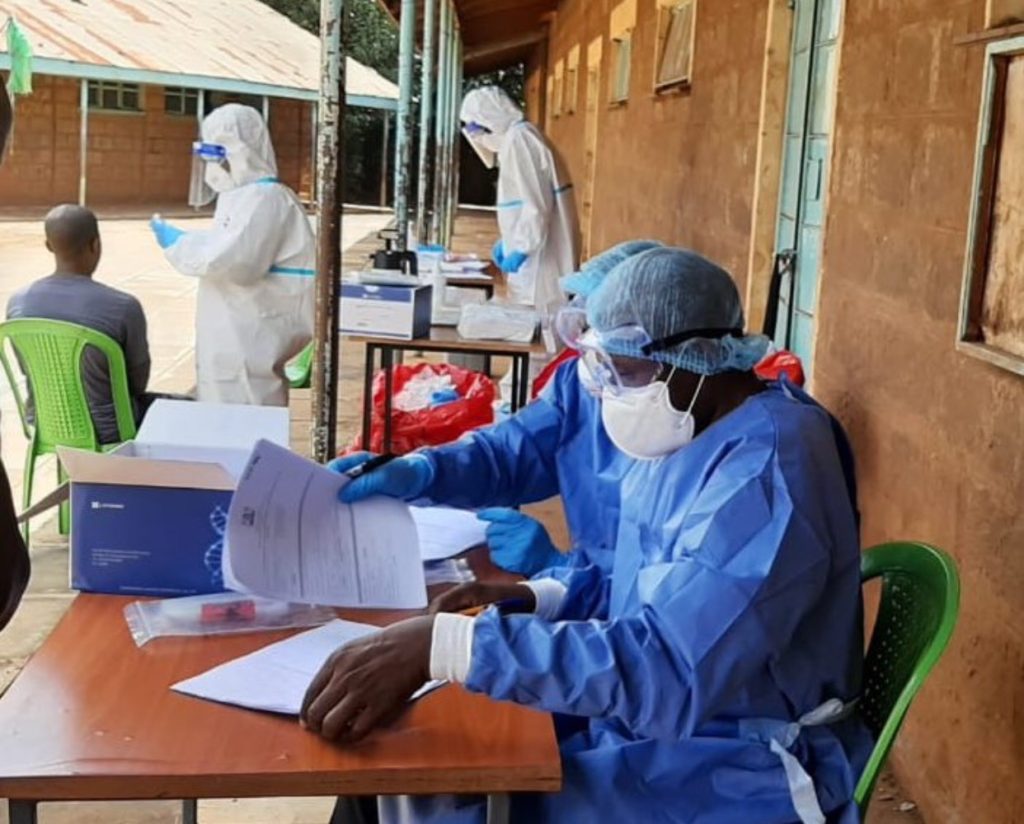NAIROBI, Kenya, May 5 – The Government has heightened COVID-19 surveillance in refugee camps as cases remained on an upward trajectory since last week.
The surveilance was heightened a week after Interior Cabinet Secretary Fred Matiangi declared a lockdown in Dadaab and Kakuma camps which host nearly half a million refugees from Somalia and South Sudan respectively.
According to the United Nations Commissioner for Refugees (UNHCR), Kenya has more than 490,000 refugees, mostly from Somalia.
Health Director for Health Dr Patrick Amoth says capacity building for health workers serving the refugee population is already ongoing, to ensure they are also covered in measures adopted to curb the spread of the disease.
“Together with our partners including UNHCR, World Vision, Red Cross and all other players we have enhanced surveillance capacity in our refugee camps,” he said.
On Monday, COVID-19 cases in the country jumped to 490, after 25 new infections were recorded in Mombasa and Nairobi.
“We continue with advocacy and community social mobilization, so that we can have the refugees as part of us in the fight against covid-19,” he said.
Testing has already kicked off in Wajir to cover the Northern region.
On Monday, Chief Administrative Secretary at the Ministry of Health Dr Mercy Mwangangi said there was an indication of a further increase in positive cases in the coming days.
“I dare to say these figures will continue to rise. Things are not back to normal,” she said.

In Nairobi, the new cases announced Monday are spread out in Mathare, Embakasi, Umoja and Kawangware which remains a hotspot since last week.
“The virus is now fully in our communities and the rate of infection is not going down,” said Dr Mercy Mwangangi, a Chief Administrative Secretary at the Ministry of Health. A six-month-old baby was among the new infections.
Cases in the country have been rising fast in the last three days, with an average of 20 cases a day.
There were 30 cases confirmed on Sunday and 24 on Saturday.
The increase in cases is attributed to the mass testing initiative that kicked off last week, even though the government has decried low interest from the public in taking the test.

“We still need to maintain these containment measures. They are not for fun; this is not a child’s play. There is crowding in hotels, people lining up at the cashier. We need to remind ourselves of the pictures we were seeing in other countries in February and March. Do we really want to go there?” Mwangangi posed.
She urged every citizen to be responsible and play their part in helping the government combat the spread of the virus that has so far claimed 24 lives in the country.
In Nairobi, the new cases are spread out in Mathare, Embakasi, Umoja and Kawangware which remains a hotspot since last week and among areas which are densely populated.
Globally, there were 3.5 million infections and more than 250,000 deaths by May 4.










































